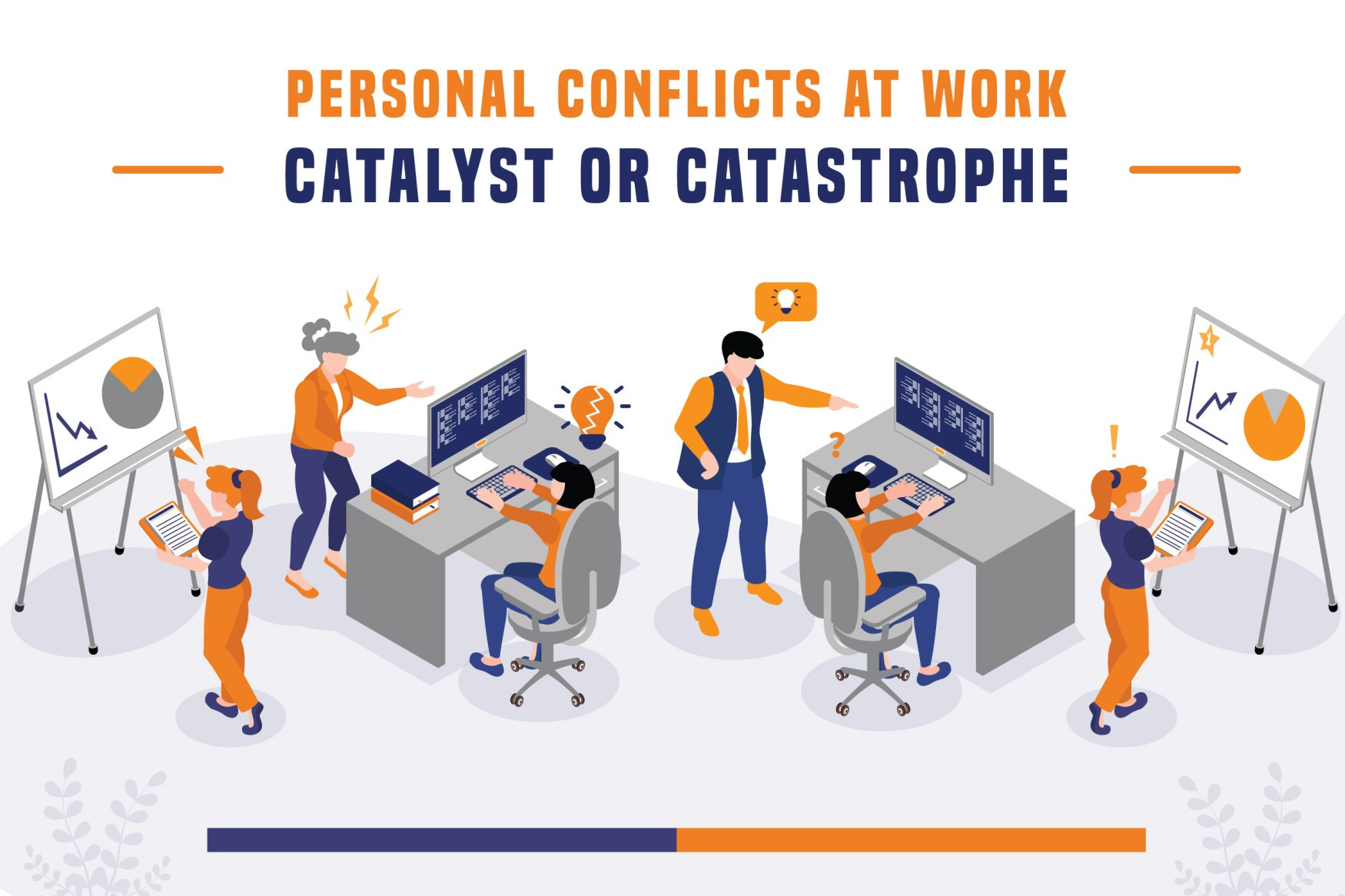
Personal Conflicts At Work: Catalyst Or Catastrophe
In every workplace, clashes of opinions and personalities are bound to occur. These personal conflicts can have a profound impact on the dynamics of the organization, either acting as a catalyst for positive change or causing a catastrophic breakdown in the work environment. The way such conflicts are managed and resolved plays a pivotal role in determining their ultimate effect on the organization. This article explores the significance of personal conflicts at work and delves into their potential as both a catalyst and a catastrophe.
Understanding Personal Conflicts at Work
Before delving into the consequences, it's essential to understand what personal conflicts at work entail. These conflicts often arise when individuals have differing beliefs, values, or communication styles. They can manifest as disagreements over work-related decisions, interpersonal issues, or even differences in work methodologies. While some conflicts are relatively harmless and easily resolved, others can be deeply entrenched and highly disruptive.
The Catalyst for Positive Change
1. Fostering Creativity and Innovation:
Personal conflicts can act as catalysts for creativity and innovation within the workplace. When individuals come from diverse backgrounds and possess varying viewpoints, it can lead to healthy debates that challenge the status quo and encourage out-of-the-box thinking. These conflicts become an opportunity to explore new ideas and solutions, paving the way for progress and growth. Businesses should encourage their employees by investing in Leadership Skills Development Training for upskilling them.
2. Improved Decision-Making:
In an environment where conflicts are addressed constructively, employees are more likely to voice their concerns and suggestions freely. This open dialogue can lead to a thorough examination of choices and lead to better decision-making processes. When decisions are critically analyzed, it results in more robust and thoughtful outcomes.
3. Strengthening Relationships:
Conflict resolution requires effective communication and empathy. When employees engage in respectfully resolving conflicts, it strengthens their relationships and builds trust among team members. This bond is invaluable in fostering a collaborative and supportive work culture. However, the required encouragement with proper Leadership Training and Development is needed though.
Catastrophic Impact on the Workplace:
1. Toxic Work Environment:
When personal conflicts are left unresolved or are mismanaged, they can create a toxic work environment. Employees may feel uncomfortable or unsafe, leading to decreased productivity and morale. The toxic atmosphere can quickly spread throughout the organization, affecting the overall work culture.
2. Decreased Productivity and Performance:
Conflicts, especially when they escalate, divert attention away from work-related tasks. Employees may become preoccupied with their disputes, neglecting their responsibilities, and hindering overall productivity. This lack of focus can lead to a decline in the quality of work and missed deadlines. These situations can be corrected with proper Leadership Training Programs For Employees.
3. High Turnover Rates:
A workplace rife with personal conflicts is likely to experience higher employee turnover rates. Employees who feel consistently embroiled in conflicts may seek opportunities elsewhere, leading to a loss of valuable talent. The cost of recruiting and training new employees with proper Leadership Training and Development can be detrimental to the organization's bottom line.
Managing Personal Conflicts Effectively
1. Promote Open Communication:
Encourage employees to communicate openly and honestly about their concerns and opinions. An open-door policy can provide a safe space for employees to express their grievances and seek resolution.
2. Conflict Resolution Training:
Provide conflict resolution training included in Leadership Training Programs For Employees to employees and management alike. Equip them with the skills necessary to navigate conflicts constructively, including active listening, empathy, and mediation techniques.
3. Lead by Example:
Leadership plays a critical role in setting the tone for how conflicts are managed within the organization. Leaders should model positive conflict resolution behaviors and ensure that they are approachable and impartial when dealing with disputes.
4. Establish Shared Goals:
Encourage a sense of teamwork and shared objectives. When employees have common goals, they are more likely to put aside personal conflicts and work collaboratively towards achieving them.
Final Words
Personal conflicts at work can either serve as a catalyst for positive change or lead to a catastrophic impact on the organization. By fostering a culture of respect, empathy, and effective communication, workplaces can harness the potential of conflicts to fuel growth and success while mitigating the risks of destructive fallout. Understanding the significance of personal conflicts and implementing proactive conflict resolution strategies is essential for creating a harmonious and productive work environment. When managed effectively, personal conflicts can become a stepping stone towards greater creativity, innovation, and a more cohesive team, ultimately propelling the organization to new heights.
